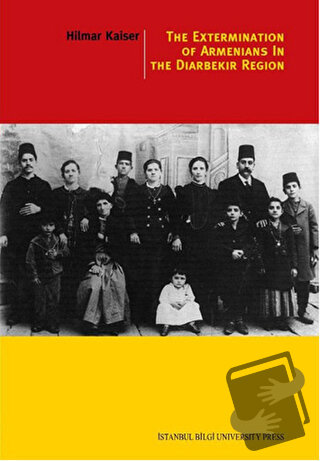
The Extermination of Armenians in the Diarbekir Region is a study based largely on neglected sources from Turkish and Armenian archives covering the years 1908 to 1915. It discusses the rise of the “Committee of Union and Progress,” the nascent Kurdish nationalist movement, and the annihilation of the Ottoman Armenian population. The deportation and massacre of Armenians was a complex process with central authorities in Istanbul, regional governors, and local elites competing for control. Consequently, decision-making, deportations, assimilation policies, the seizure of Armenian properties as well as the settlement of Kurdish and other Muslim groups appear in a new light. Rather than following a strict preconceived plan, Ottoman authorities regularly implemented ill-defined policies. Often they followed suggestions from governors.
Consequently, local officials had a more radicalizing impact on overall anti-Armenian policies than hitherto assumed. Many others, however, offered determined resistance. Neither the “Committee of Union and Progress” nor the Ottoman bureaucracy had unified in persecuting Armenians. The book does not present the developments in the region in a dichotomous perspective but emphasizes complexities beyond the governing paradigms and opens new avenues for research and discussion..
| Taksit Sayısı | Taksit tutarı | Genel Toplam |
|---|---|---|
| Tek Çekim | 297,50 | 297,50 |
| 3 | 108,37 | 325,11 |
| 6 | 57,21 | 343,29 |
| 9 | 40,17 | 361,49 |
| 12 | 31,64 | 379,64 |
| Taksit Sayısı | Taksit tutarı | Genel Toplam |
|---|---|---|
| Tek Çekim | 297,50 | 297,50 |
| 3 | 108,37 | 325,11 |
| 6 | 57,21 | 343,29 |
| 9 | 40,17 | 361,49 |
| 12 | 31,64 | 379,64 |
| Taksit Sayısı | Taksit tutarı | Genel Toplam |
|---|---|---|
| Tek Çekim | 297,50 | 297,50 |
| 3 | 108,37 | 325,11 |
| 6 | 57,21 | 343,29 |
| 9 | 40,17 | 361,49 |
| 12 | 31,64 | 379,64 |
| Taksit Sayısı | Taksit tutarı | Genel Toplam |
|---|---|---|
| Tek Çekim | 297,50 | 297,50 |
| 3 | 108,37 | 325,11 |
| 6 | 57,21 | 343,29 |
| 9 | 40,17 | 361,49 |
| 12 | 31,64 | 379,64 |
| Taksit Sayısı | Taksit tutarı | Genel Toplam |
|---|---|---|
| Tek Çekim | 297,50 | 297,50 |
| 3 | 108,37 | 325,11 |
| 6 | 57,21 | 343,29 |
| 9 | 40,17 | 361,49 |
| 12 | 31,64 | 379,64 |
| Taksit Sayısı | Taksit tutarı | Genel Toplam |
|---|---|---|
| Tek Çekim | 297,50 | 297,50 |
| 3 | 108,37 | 325,11 |
| 6 | 57,21 | 343,29 |
| 9 | 40,17 | 361,49 |
| 12 | 31,64 | 379,64 |
| Taksit Sayısı | Taksit tutarı | Genel Toplam |
|---|---|---|
| Tek Çekim | 297,50 | 297,50 |
| 3 | - | - |
| 6 | - | - |
| 9 | - | - |
| 12 | - | - |
The Extermination of Armenians in the Diarbekir Region is a study based largely on neglected sources from Turkish and Armenian archives covering the years 1908 to 1915. It discusses the rise of the “Committee of Union and Progress,” the nascent Kurdish nationalist movement, and the annihilation of the Ottoman Armenian population. The deportation and massacre of Armenians was a complex process with central authorities in Istanbul, regional governors, and local elites competing for control. Consequently, decision-making, deportations, assimilation policies, the seizure of Armenian properties as well as the settlement of Kurdish and other Muslim groups appear in a new light. Rather than following a strict preconceived plan, Ottoman authorities regularly implemented ill-defined policies. Often they followed suggestions from governors.
Consequently, local officials had a more radicalizing impact on overall anti-Armenian policies than hitherto assumed. Many others, however, offered determined resistance. Neither the “Committee of Union and Progress” nor the Ottoman bureaucracy had unified in persecuting Armenians. The book does not present the developments in the region in a dichotomous perspective but emphasizes complexities beyond the governing paradigms and opens new avenues for research and discussion..











